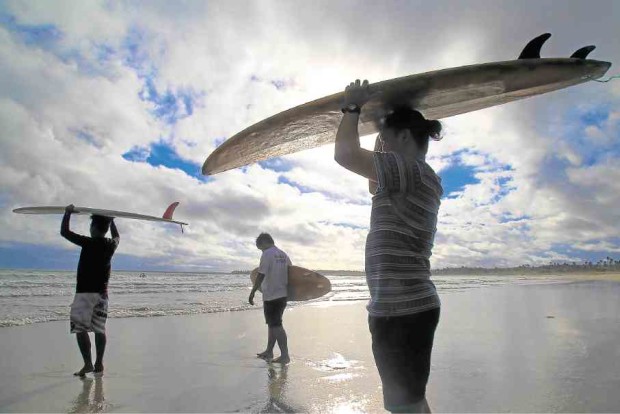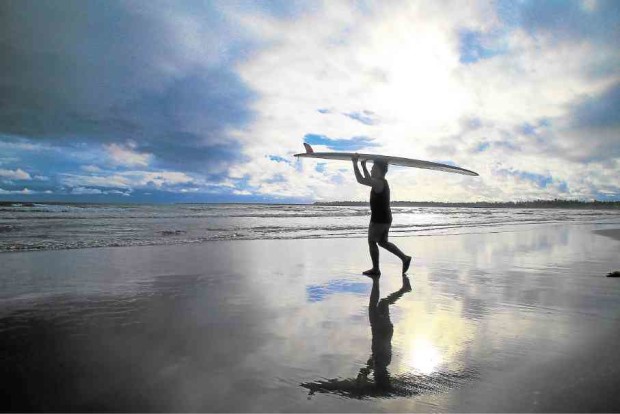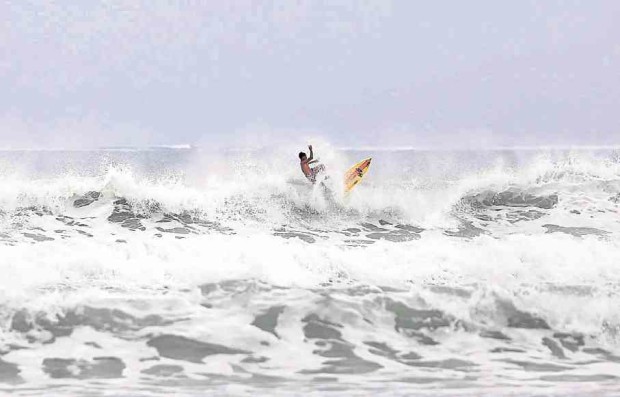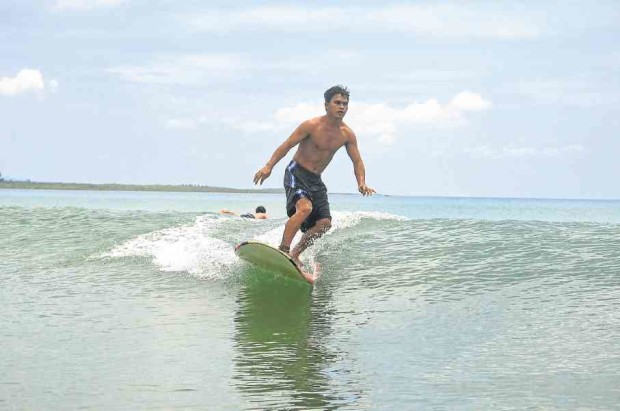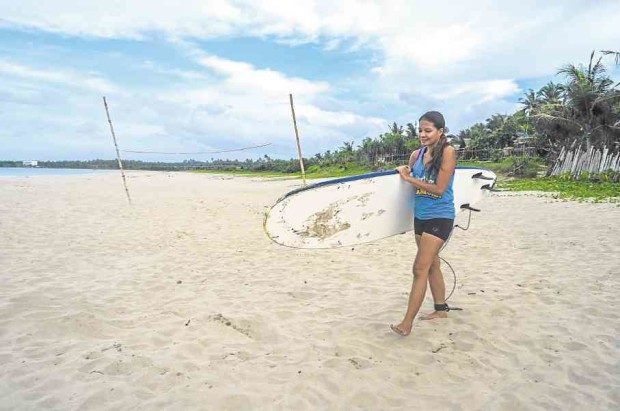Learning to surf, minding the school
GUBAT, Sorsogon—“This one is big!”
That giddy scream broke a quiet afternoon among a group of men in their 20s on Rizal Beach. It was the good wave they needed to perk things up.
They carried their surfboards and headed to the sea to enjoy the swell. For more than two hours, they rode on the seemingly endless cycle of good waves.
The sun-browned men are no ordinary surfers; they are the next batch of instructors at Lola Sayong Eco-Surf Camp, one of the popular destinations in Gubat town in Sorsogon province for novice surfers.
“Waves here are suitable for practice. Many come here to learn because the place is beginner-friendly,” said Noli Mercader, who founded the camp in 2014.
Article continues after this advertisementJanmel Eugerio Domdom, 22, spends almost a full week at Lola Sayong for one more reason: To support himself to school. He is one of three scholars of the surf camp.
Article continues after this advertisementThe academic subsidy comes from surfing lesson fees (P350 per hour) collected from visitors, Mercader said.
“We told Janmel and the rest that whenever they’re here, we will support their education. We said we would make sure they study whatever they like after high school,” he said.
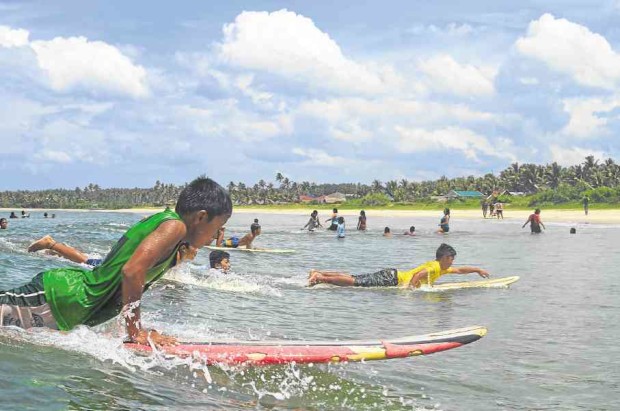
Children in Gubat, Sorsogon, learn to surf so they can guide visitors who flock to their town to enjoy its waves. —REY ANTHONY OSTRIA
Learning surfing
Domdom, who was trained by the Academy of Surfing Instructors, has been teaching the water sport for five years at the camp.
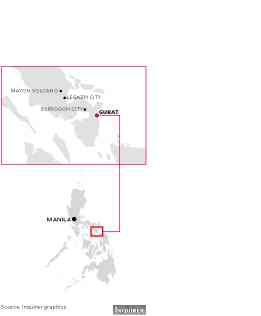
Mercader and a few others came to the rescue. They were offered money for the gesture, but the group refused to take it.
“They said they can teach us how to surf instead so it wouldn’t happen again,” Domdom said.
Domdom is studying horticulture at the Technical Education and Skills Development Authority. On weekends, he teaches visitors and grooms his younger friends to become the future instructors.
He earns about P500 a week, an amount, he said, was enough to help his family and to pay for school projects and other fees.
No school, no surf
Mercader, however, imposes an important rule for instructors: they should attend classes so they can surf. He said they were imparting on Domdom and the others the value of education so they could create jobs someday.
“They need education so no one will take advantage of them. We want them to [be equipped with knowledge] so Lola Sayong can last for generations. Without education, how will they be able to sustain the camp?” Mercader said. “They should know how to run things.”
John Erick Eva, 20, another camp scholar who is studying maritime transport, said his group learned to be eco-friendly because of the camp rules.
He intends to buy more surf boards and help in whatever way once he starts earning.
“We plan to start a garden in the camp soon. I know I can use my horticulture knowledge. I want to focus on that,” Domdom said.
“We can’t surf forever. We know it is important for us to be educated. We want to make our families proud as well,” said Rodel Estares, 20, another scholar.
Not for profit
Mercader said he was planning to help more children in the community and at an orphanage in Sorsogon City.
“This place isn’t just for profit. We originally wanted to promote responsible tourism. That’s why we have camp rules. You can’t smoke here but [we designated a] smoking area [elsewhere]” he said.
Mercader said he adopted what he learned from mountaineering in running the place, especially in observing what he called as outdoor ethics. “When we have visitors, we tell them not to leave any trace behind,” he said.
While camp helpers and visitors still have much to learn, Mercader is happy with the growing awareness and concern for nature.
“If I would to rate how eco-friendly the camp is, from 1 to 5, I would say we’re still at 3. Some of our visitors are still not aware about [waste] segregation. But it’s slowly becoming a trend,” he said.
Someday, he hopes the camp won’t have to remind visitors of the rules. “We want to do the right things without being told,” he said.
